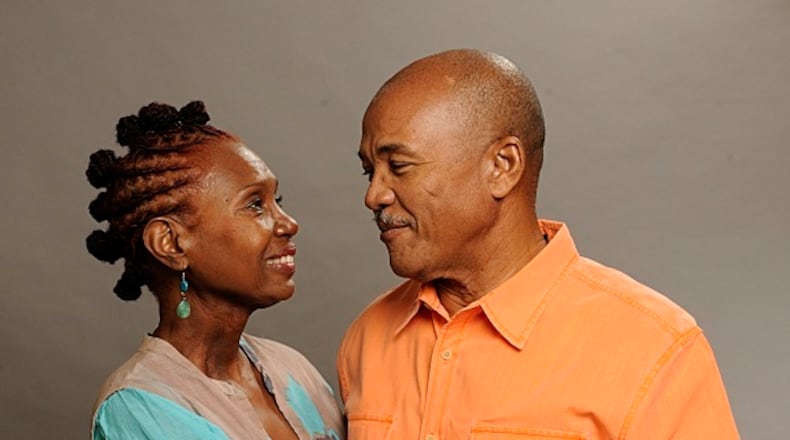Doctors already suspected Charles Ross had cancer. On one of his doctors' appointments, he pointed to the neck of his wife, Bari. Did that lump need to be looked at?
From there, things happened fast. In May 2009, she was diagnosed with head and neck cancer. Three days later, his diagnosis came through: acute lymphoblastic leukemia.
"We both had very serious cancers," Bari said. "Mine was late stage and I had no symptoms. And he was in very, very bad shape when he got the diagnosis."
The severity of their illnesses caused monumental physical, emotional and social upheaval. Acute lymphoblastic leukemia (ALL) is a rare disease, and most patients older than 60 years of age with this disease are not cured. The treatment is very intensive, with frequent hospitalizations for chemotherapy and the chemotherapy wipes out the body’s immune defenses leaving patients very weak and prone to infections. Bari's cancer required aggressive treatment that sometimes left her disoriented and unaware of her surroundings.
"I didn't understand the magnitude of cancer. I thought maybe I'd go to the doctor once a week and get a shot," Charles said. "What the doctor was saying was ‘If you don't come and get treatment your family is going to have to start making arrangements.'"
At their daughter's insistence, the couple sought care at the Winship Cancer Institute of Emory University. Almost immediately, Winship doctors started Charles and Bari on aggressive treatment. Bari received radiation treatment every day for seven weeks and went through several rounds of chemotherapy before undergoing surgery. Charles went through six months of intensive chemotherapy and then another two years of outpatient treatment.
Dr. Martha Arellano said she told Charles that the majority of patients his age with his disease don't survive the illness.
"Charles had fevers, swollen glands and what he thought was an infection," said Dr. Arellano. "He went to the doctor urgently."
"This is typical for ALL. People can get sick with infections because the leukemia weakens their immune system, they can be deathly ill when the disease is discovered. Others have a fever and swollen glands and feel like they have an infection, but those are also symptoms of the leukemia.”
During their treatment, Bari and Charles relied on a group of people they call their "guardian angels." They stayed with their daughter, who at the time was pregnant.
"Every week, someone with either my family or Charles' family would come down and stay for a week or 10 days," Bari said. "There were people from my church who would come and stand in when my daughter was overwhelmed."
Often, the couple was hospitalized at the same time, just a floor away from the other. Charles said he also did his best to look after Bari when the treatments left her weak.
"A lot of times, she didn't know what was going on. I had to make sure she was getting medicine, that she was being fed through her feeding tube," Charles said. "It was tough, but we kept the faith, and we kept seeing the light at the end of the tunnel."
Now, at 67, Charles is cured of ALL, according to Dr. Arellano. Doctors consider patients cured when they have survived for five years without the disease coming back.
"If the leukemia is going to relapse, it's usually within the first two to three years from the time that it's diagnosed," Arellano said. "Every time you see this type of patient, you hope to see them another month."
This article is presented in collaboration with the Winship Cancer Institute of Emory University. Visit the website for more information.
About the Author
The Latest
Featured

